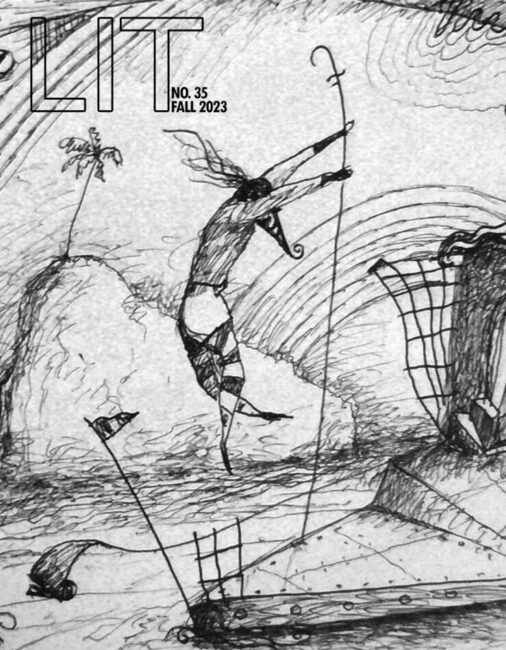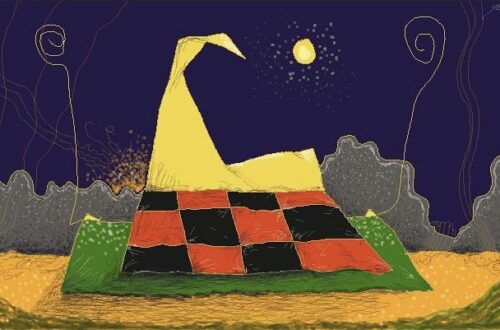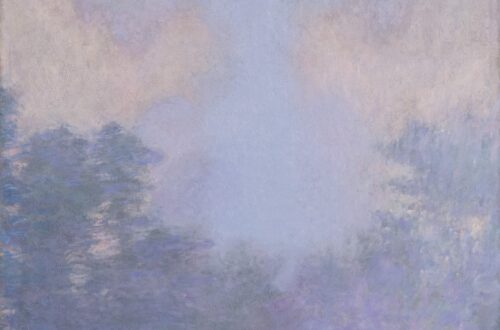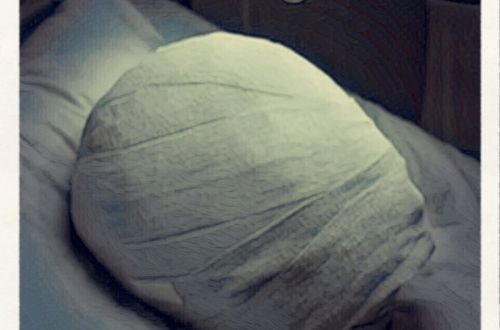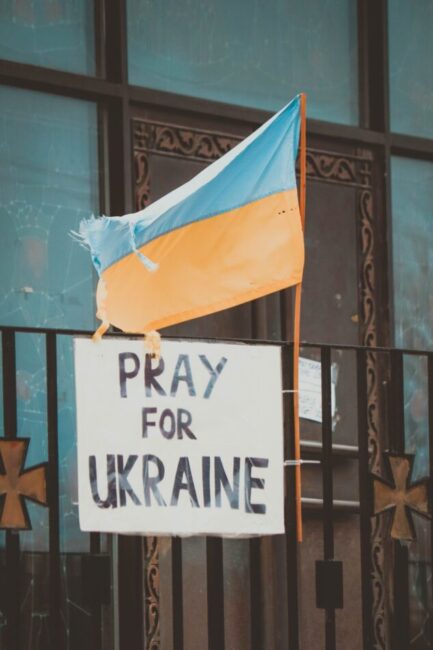
500 Days and Counting: Memories from Ukraine
by Clare Cannon
photo by Tungsten Rising on Unsplash
Day 7
“Bomba. Over us,” my friend Anya, who cat-sat for me in Ukraine, typed into Messenger. “Pray. We are in corridor.” I slumped in the wooden chair where I sat at the Spear Physical Therapy clinic in Manhattan as I read, “Rocket was here.” My world exploded. My physical therapist Nada brought me a box of tissues and a cup of cold water. “My friend just got bombed,” I sobbed.
“Clare, I’m so sorry,” she said in her lyrical Egyptian accent. “I’m so sorry.” Another doctor from the clinic gave me a hug, as I stared at my phone and waited for confirmation that Anya, one of my closest friends from Kyiv, was okay. The calm, tranquil Zen-like setting of the studio annoyed me. I desperately checked my phone every second waiting for news.
An hour later I learned that the bomb that had dropped over her house landed seven kilometers away. I felt grateful she survived the attack.
It feels as if a decade has passed since Russia launched a full-scale invasion on February 24, 2022. A week ago, Kyiv was the beautiful, thriving European metropolis which I had called home for five years from 2014 to 2019. I missed the ringing of church bells that awakened me every Sunday and the local organic market where I would buy fresh croissants and Americanos in the mornings, then leisurely stroll the winding streets to Shevchenko Park. Kyiv felt wild and untamed: an ancient place full of gritty layers waiting to be unearthed.
Prior to moving there, I had visited the country previously in 2009 to teach art classes to children at a Ukrainian orphanage in Crimea. The orphanage smelled of bleach and mold. I wondered how these children could live in such dilapidated buildings. Yet despite the bleakness of their living quarters, the children were able to create such vibrant and expressive drawings and watercolors. I knew that I needed to do whatever I could to help these children and made a promise to return someday.
I frantically messaged and waited for news. One friend confirmed her family was traveling west to Chernivtsi. Another asked for donations to support the orphaned children they rescued from Kherson. Yet another texted me in Russian on WhatsApp, “Everything is normal. If you can call it normal. Thank you for your worry, my little fish.”
A friend and former parent from the school where I used to work, Lana Kaufman, a Jewish Ukrainian artist, age 40, and her husband, Maksym Pustozvonov, age 34, a member of Ukraine national basketball team, were visiting Miami, Florida for vacation when war broke out. Now, the family of five is unable to return home.
Lana sobbed, “My grandmother 82, [lived at the] same house since she was three years old. Since the Germans came—it’s happening all over again…People are escaping to Chernobyl because it’s safer there. They won’t shoot there. It’s what Hitler did to the Jewish people. I’m crying all these days.”
I reflected on the time when her twins, Sonya and Misha, helped me make a cardboard house out of used boxes so that they could act out the story of The Three Little Pigs. Misha would stand outside the house, bellowing, “I huff. I puff. I blow house down,” while his sister
Sonya giggled inside her cardboard home, as her brother wrapped his hands around the cardboard frame and shook the house.
“I have friends in Kyiv that cannot go. They help deliver babies,” Lana remarked. “Moms are losing their milk from the stress. They try to find some cow milk, whatever milk they can for their babies. [The Russian] people outside don’t believe it…They say, ‘no don’t believe. It’s all fake.’ [That’s what] people in Russia believe.”
Her husband continued, “In this situation, in 24 hours we cannot sleep. We cannot eat. You see the bombs coming. I don’t know how many times my mother sent me these texts. Please forgive me. I love you. I cannot.”
I reminisced about how happy we were at the school’s International Night in 2018, when they took Sonya and Misha, dressed in American flag T-shirts, to the classroom for the students representing America for the parade of nations. Children and families from different countries had worn ceremonial dress and represented their home country in a march around the school gymnasium. I had been assigned to the American room and had asked to wear an old Statue of Liberty costume stashed in my suitcase.
Maksym voiced, “In 2014—That started with only 100 students in the square. Then next day, 500. Then one million people came. You can’t put one million people in jail. No room. How many people are going to come out and support this?”
Lana chimed in, “We need to speak up and tell the truth. Stop this horror. This is not war—it’s genocide. We all pray for our families. We pray for peace every day. All our homes are in Ukraine. We have to start all over from the beginning.”
We both sat silent on the phone as I heard their baby cry in the background.
After saying hello to her daughter, I said to Lana, my nose running, “Whatever you and your family need, let me know. If you’d like me to read stories to the children, Skype with them…I’m happy to do it.”
“We talk soon,” Lana said. “Bye.” We both hung up, stunned, praying for an end to this senseless unjustified slaughter of the Ukrainian people.
Day 228
Opening the news feed on my phone, I was horrified to see that the children’s playground in Shevchenko Park, a prominent recreation center for families and children in the city center of Kyiv, next to the blood-red Taras Shevchenko National University, had become a crater of twisted metal and blasted bricks. While teaching in Kyiv, I took my students to Shevchenko Park for field trips where my class would take nature walks, play in the playground, and enjoy picnics of popcorn and hot cocoa on the park benches.
Scrolling through photos of Shevchenko Park I’d forgotten to delete, I thought about our adventures and the familiar paths where my students would collect leaves and twigs, count the blue eyes painted on the trees, and feed popcorn to the pigeons near the statue of Ukraine’s national poet, the namesake of the Park and face on the cream-colored 100 hryvina notes: Taras Shevchenko.
Born a serf, he became a poet and started the revolutionary spirt of democracy in his native land; the influence of his life and writings rippled through the country like the falling leaves.
Going through the photos of trees, leaves, and flowers, my eyes stopped on a photo of children playing on the red, green, and yellow wooden playground equipment. I noticed Lana in one of the photos.
I thought about the conversations we had earlier this year, and opened up her profile on Instagram. Scrolling through her posts, I basked in the colors, sounds, and textures of the moments and memories captured.
Day 522
I was exhausted. The heat broiled, and I set my air conditioner to 72 degrees, thankful that there was at least some cool air reviving me. I sent Anya another reel from good.boy.ollie on Instagram. Ever since the early days of the war, I decided one of the things I could do, besides pray, was to send her cat and dog reels on Instagram, hopefully bringing some levity to her day. In the year that had passed, she had sought refuge near the Romanian boarder, dealt with the tragic death of her husband’s sister Olya, who died after being relocated from a hospital to the metro station due to bombing, and had had a baby girl.
I felt guilty for complaining about recovering from a concussion. I reached out to Lana on Instagram, curious to see how she and her family were doing now that it had been over 500 days of war. Lana wrote, “Here in the [TX] we are safe, and in Ukraine my father lives [in] our apartment as the rocket hit his home. My sister lives in the west of Ukraine, and we are now trying to get her and her 10-year-old son [parole] U4U as she has no place to live for the winter. All my other relatives left Ukraine for Germany as their homes were not good for living after the bombing of Kharkiv.”
“First of all, the kids finished their elementary school and happily joined middle school—we don’t have this in Ukraine—just grades—so the kids feel very proud and grown up. As for me, I just realized that the war [may last] for an infinite time and I have to live and build my life now. So I have just qualified for participation at Art Basel Miami in December. I feel happiness and joy as that was my dream! Now I am in the process of creating art pieces for sale. I will represent Kyiv, Ukraine and have art works dedicated to my Ukraine during this war.”
Lana continued, “I wish people were more deliberate and would choose life and love over death. My mother has lived in Crimea since 1993. She lives with my nephew who turned 17, and they cannot leave the peninsula. We all suffer. We realize there may be a situation when we will never see each other again. My mother is afraid to talk to me by phone. My nephew came to see my mom during the February school holidays, and he stays with her alone in Crimea. Every day he fears he could be caught by the Russian army and killed. I can’t express my feelings in words.”
“He should have already finished school, but the school at Crimea didn’t take him, as they now consider him an enemy from Ukraine. I try to cheer up my nephew Arthur and advise him to learn online. This is the time to study and sit at home, I tell him. We all hope that the war will finish and we can see and meet soon.”
The air conditioning continues to hum as I read Lana’s words. “What we do regularly—is donate. And we hope and believe the war will finish and people will become even more conscious and united. These are the new forms of life: trust and go with the flow. Acceptance and humility are the lessons we learn for growth.”
I send Lana three blue heart emojis and close the app on my phone, resolved to strive for hope.
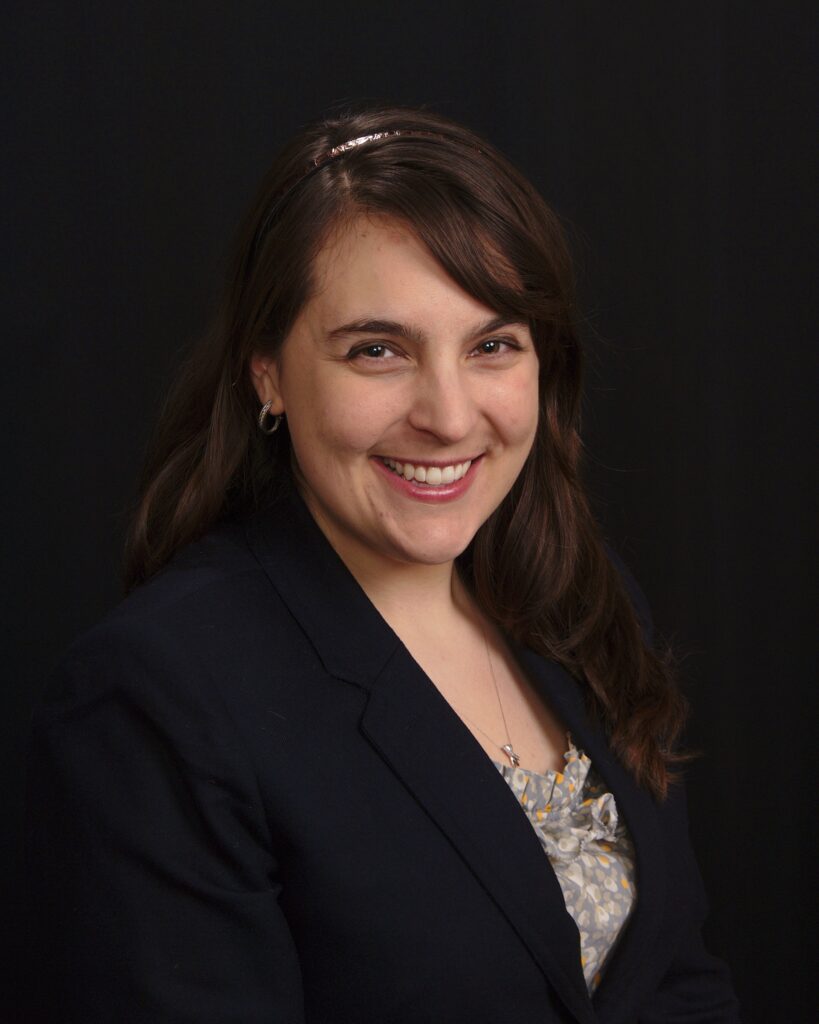
Clare Cannon is a writer and artist whose work grapples with the themes of "Vanitas Veritas" and pain. Cannon's work has appeared in The Independent and Insider. Cannon is a graduate of the MFA Creative Writing program at The New School, and lives in New York City. She is currently working on a book about her experiences from Ukraine.
